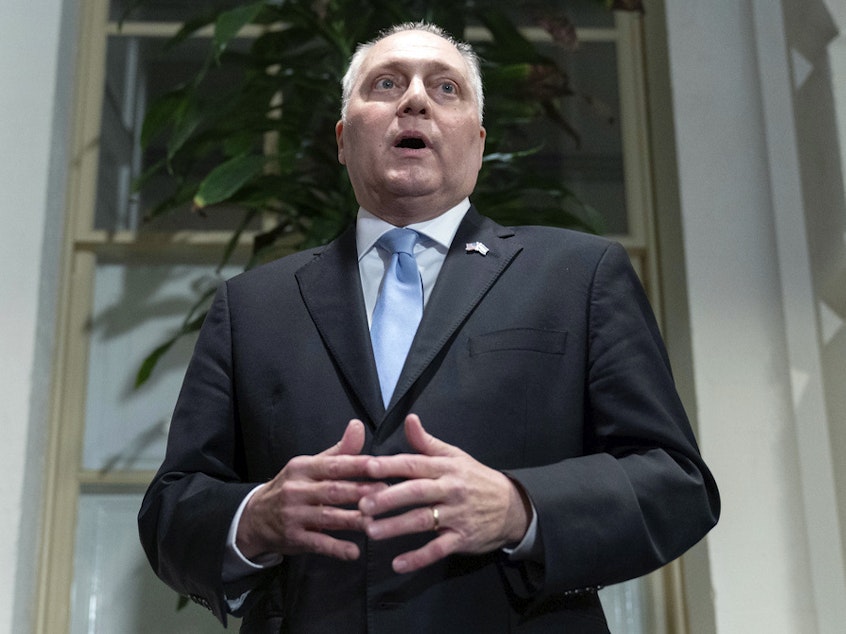Scalise drops out of race for speaker of the House, leaving Congress in limbo

Rep. Steve Scalise, R-La., has dropped out of the race to become the new House speaker, after failing to secure enough support for his bid to succeed on the floor.
"I was very clear we have to have everybody put their agendas on the side and focus on what this country needs," Scalise told reporters in the Capitol. "This country is counting on us to come back together. This House of Representatives needs a speaker, and we need to open up the House again."
Scalise informed House Republicans of his plans during a closed-door meeting in the basement of the Capitol.
Scalise, the current Republican majority leader, won a narrow majority of the conference in a closed-door, secret-ballot election on Wednesday. By a vote of 113-99, Scalise defeated House Judiciary Committee Chairman Jim Jordan, R-Ohio, but was far short of the votes needed to win a majority of the full House: 217 if all current members are present and voting.
He spent days meeting with holdouts to try to assuage their concerns, but his path to 217 remained murky.
Sponsored
With no speaker and no Republican nominee for speaker, the House remains frozen as war rages between Israel and Hamas and a government funding deadline looms on Nov. 17.
The path forward for choosing another speaker candidate is far from clear.
This is a developing story. [Copyright 2023 NPR]



